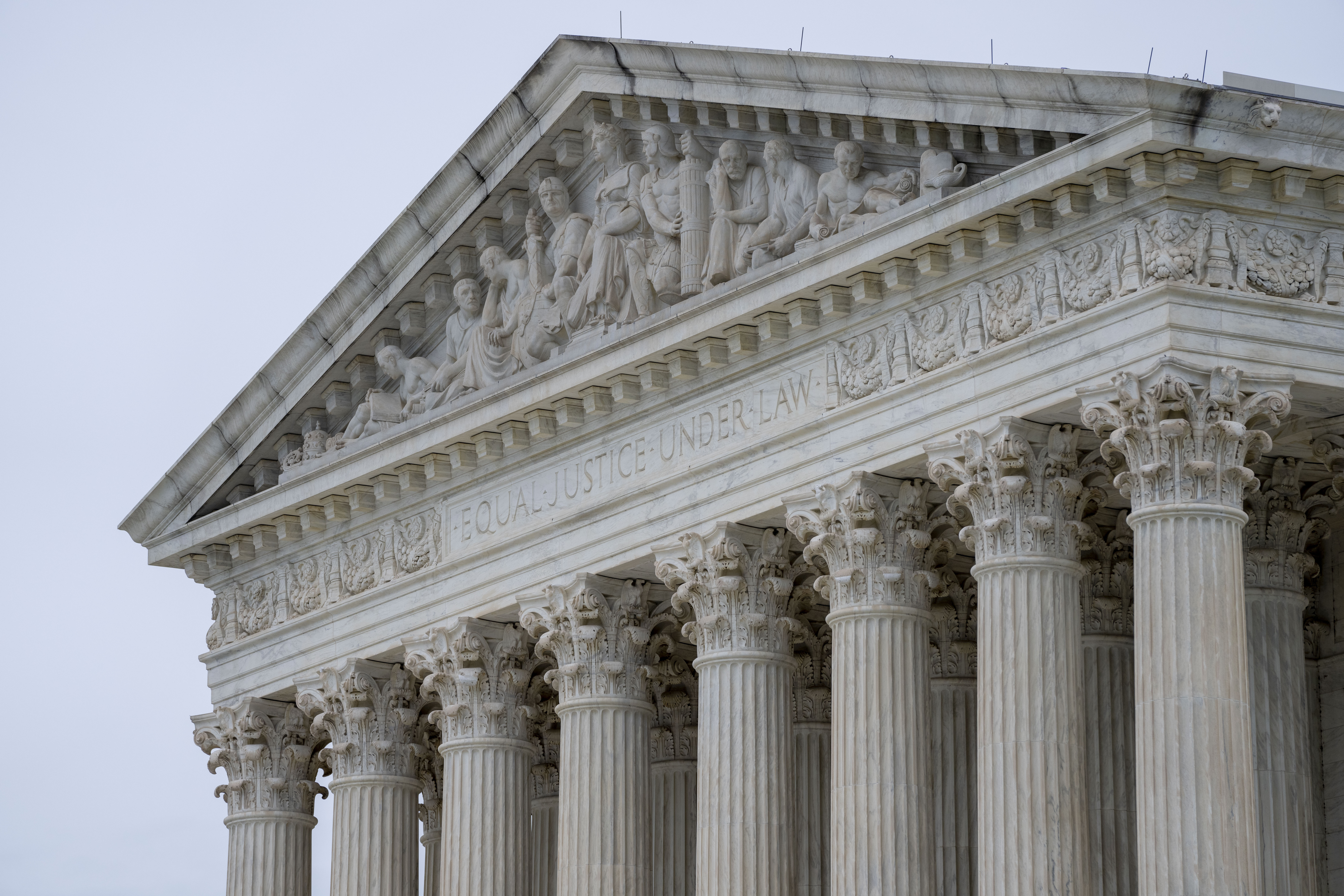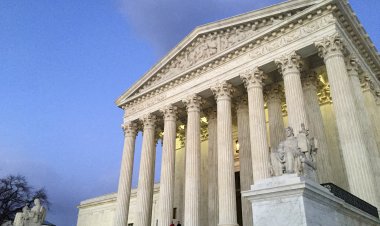Supreme Court dramatically shrinks Clean Water Act’s reach
The Biden administration this year finalized a rule to cement broad protections for wetlands. That regulation must now be reworked in light of the Supreme Court ruling.


The Supreme Court on Thursday significantly shrank the reach of federal clean water protections, dealing a major blow to President Joe Biden’s efforts to restore protections to millions of acres of wetlands and delivering a victory to multiple powerful industries.
The ruling from the court's conservative majority vastly narrowing the federal government’s authority over marshes and bogs is a win for industries such as homebuilding and oil and gas, which must seek Clean Water Act permits to damage federally protected wetlands. Those industries have fought for decades to limit the law’s reach.
The ruling comes less than a year after the high court issued a contentious ruling restricting EPA's ability to regulate climate warming gases, and liberal Justice Elena Kagan decried Thursday that the court has appointed "itself as the national decision-maker on environmental policy."
The 5-4 ruling in Sackett v. EPA creates a far narrower test than what has been used for more than half a century to determine which bogs and marshes fall under the scope of the 1972 law. Under the majority's definition, only those wetlands with a continuous surface water connection to larger streams, lakes and rivers would get federal protections.
Justice Samuel Alito, joined by Chief Justice John Roberts and Justices Clarence Thomas, Neil Gorsuch and Amy Coney Barrett, wrote in the majority opinion that only those wetlands that are “indistinguishable” from those larger waters should be covered.
“Wetlands that are separate from traditional navigable waters cannot be considered part of those waters, even if they are located nearby,” Alito wrote.
The court’s liberals, joined by Justice Brett Kavanaugh, disagreed with that test, arguing that it cuts out a broad swath of wetlands that are important to Clean Water Act’s goal of protecting the nation’s waters.
“Put simply, the Court’s atextual test — rewriting 'adjacent' to mean 'adjoining' — will produce real-world consequences for the waters of the United States and will generate regulatory uncertainty,” Kavanaugh wrote in his concurring opinion.
Biden blasted the ruling in a statement Thursday afternoon, warning that it "will take our country backwards" and promising to "use every legal authority we have" to protect Americans' water.
"Today’s decision upends the legal framework that has protected America’s waters for decades," Biden said. "It also defies the science that confirms the critical role of wetlands in safeguarding our nation’s streams, rivers, and lakes from chemicals and pollutants that harm the health and wellbeing of children, families, and communities."
EPA Administrator Michael Regan, whose agency earlier this year finalized a rule aimed at cementing a broad interpretation of the water law, said in a statement that he was disappointed by the decision.
“As a public health agency, EPA is committed to ensuring that all people, regardless of race, the money in their pocket, or community they live in, have access to clean, safe water. We will never waver from that responsibility," Regan said.
Environmental groups also swiftly criticized the decision, arguing that it guts the federal government’s ability to protect the health of the nation’s waters and will have far-reaching repercussions.
“The Supreme Court ripped the heart out of the law we depend on to protect American waters and wetlands,” Manish Bapna, president and CEO of the Natural Resources Defense Council, said in a statement. “This decision will cause incalculable harm. Communities across the country will pay the price.”
The ruling is the latest turn in the long-running dispute over how far upstream federal water protections should reach. Industry groups, environmentalists and the federal government have been brawling in the courts since the vaguely worded Clean Water Act was passed.
The last time the Supreme Court took on the issue, in the 2006 case Rapanos v. United States, it issued a famously muddled decision in which the court’s four conservative justices crafted a narrow test, extending federal protections to only “relatively permanent” waters. Then-Justice Anthony Kennedy, however, crafted his own, separate test in his concurring opinion. The result was mass confusion in the field as successive Democratic and Republican administrations sought to impose their policy preferences.
In recent years, as the Supreme Court has tilted further to the right, opponents of broad federal authority have been angling to get the issue before justices again, hoping for a more decisive outcome in their favor — which the court delivered Thursday.
The Sackett case centers on a patch of wetlands on property owned by Chantell and Michael Sackett near Priest Lake, Idaho. The couple, who had planned to build their dream home on the property, have been tangling with EPA and the Army Corps of Engineers for a decade and a half over whether it should be subject to Clean Water Act permitting requirements.
The justices unanimously agreed that the couple's specific wetlands should not be subject to Clean Water Act regulation, and that the court's prior test, stemming from the 2006 case Rapanos v. United States, should no longer determine the scope of the law. For this reason, Kavanaugh's opinion and a separate opinion from the court's liberals, are considered to be concurring opinions.
The two wings of the court, however, remained sharply divided over what the new test for federal jurisdiction should be.
Conservatives, property rights activists and industry groups celebrated the ruling Thursday, arguing that it reins in a vast overreach that had effectively given the federal government control over land use.
"The EPA clearly overstepped its authority under the Clean Water Act by restricting private property owners from developing their land despite being far from the nearest navigable water," American Farm Bureau Federation President Zippy Duvall said in a statement.
The Biden administration must now decide how to proceed. At a minimum, the regulation it finalized in January will need to be reworked in light of the new ruling. That rule is currently in effect in fewer than half of the states; the other half are covered by judicial freezes.
In anticipation of the high court's ruling in Sackett, EPA has already queued up work on a second regulation, which it has said it plans to propose this fall.
"The Biden-Harris Administration has worked to establish a durable definition of ‘waters of the United States’ that safeguards our nation’s waters, strengthens economic opportunity, and protects people’s health while providing the clarity and certainty that farmers, ranchers, and landowners deserve," Regan said. "These goals will continue to guide the agency forward as we carefully review the Supreme Court decision and consider next steps."
Alex Guillén contributed to this report.
Discover more Science and Technology news updates in TROIB Sci-Tech












